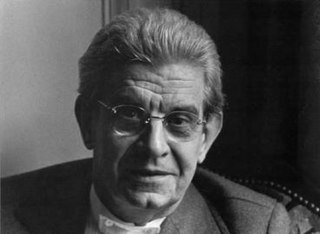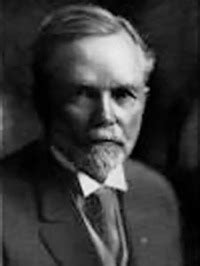A Quote by Jacques Lacan
The only thing of which one can be guilty is of having given ground relative to one's desire.
Related Quotes
The hostility perpetually exercised between one man and another, is caused by the desire of many for that which only few can possess. Every man would be rich, powerful, and famous; yet fame, power, and riches, are only the names of relative conditions, which imply the obscurity, dependence, and poverty of greater numbers.
In Yugoslavia we were told we were not only naive idealists in wanting war criminals to be prosecuted but that we were actually standing in the way of a ceasefire which would save more lives. The idea was that, by giving amnesty to these ruthless warmongers, you would give them an incentive to stop killing. I found that incredibly naive, never mind cynical. Having been on the ground and having met with these ruthless killers, I knew the only thing they understood was the language of force.
Celebration is not because some desire is fulfilled - because no desire is ever fulfilled. Desire as such cannot be fulfilled. Desire is only a way to avoid the present moment. Desire creates the future and takes you far away. Desire is a drug; it keeps you stoned, it does not allow you to see the reality - that which is herenow.
ACCOMPLICE, n. One associated with another in a crime, having guilty knowledge and complicity, as an attorney who defends a criminal, knowing him guilty. This view of the attorney's position in the matter has not hitherto commanded the assent of attorneys, no one having offered them a fee for assenting.
Now, if the Standard Oil Company were the only concern in the country guilty of the practices which have given it monopolistic power, this story never would have been written. Were it alone in these methods, public scorn would long ago have made short work of the Standard Oil Company. But it is simply the most conspicuous type of what can be done by these practices. The methods it employs with such acumen, persistency, and secrecy are employed by all sorts of business men, from corner grocers up to bankers. If exposed, they are excused on the ground that this is business.
The law is not known, since there is nothing in it to know. We come across it only through its action, and it acts only through its sentence and its execution. It is not distinguishable from the application. We know it only through its imprint on our heart and our flesh: we are guilty, necessarily guilty. Guilt is like the moral thread which duplicates the thread of time.
The citizens of a city are not guilty of the crimes committed in their city; but they are guilty as participants in the destiny of [humanity] as a whole and in the destiny of their city in particular; for their acts in which freedom was united with destiny have contributed to the destiny in which they participate. They are guilty, not of committing the crimes of which their group is accused, but of contributing to the destiny in which these crimes happened.






































